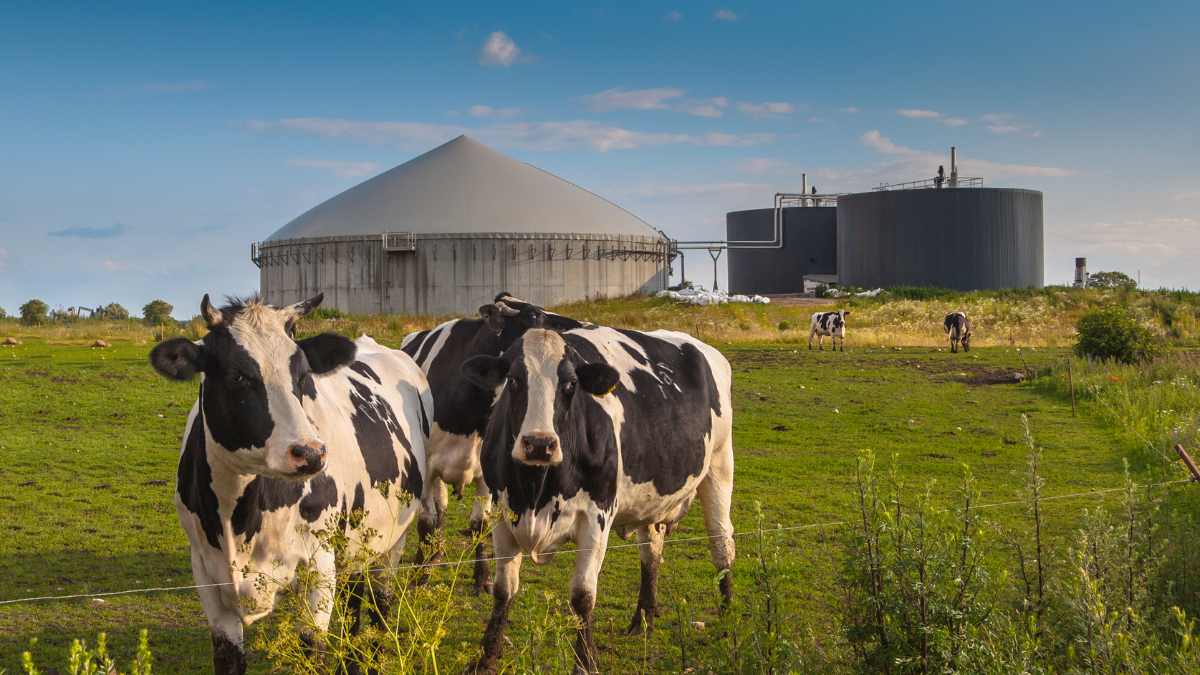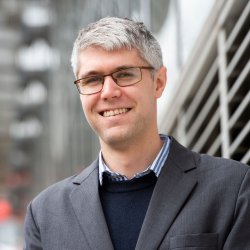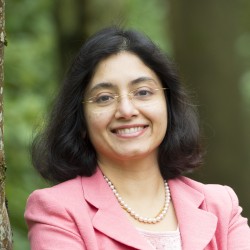AI plus microbes could unlock higher biogas production for UK
Researchers are using artificial intelligence to develop better microorganism-led processes that efficiently 'eat' products such as food waste, wastewater and animal manure to help boost the UK's burgeoning green industry. The project, which is led by the University of Surrey, has been awarded a £1.4 million grant by UK Research and Innovation.

The research will investigate the impact of using different types of waste to feed anaerobic digestors, along with computational tools for site-wide optimisation. Using sensors from across the value chain and information from sampling the microbes, the team will create virtual copies of the digestors (digital twins), which will enable AI systems to learn about the impacts of different feedstocks and early indicators of change.
Dr Michael Short, Principal Investigator from the University of Surrey’s School of Chemistry and Chemical Engineering and Fellow of the Institute for Sustainability, said:
"The challenge of complex bioreactors are their lack of predictability, exacerbated by the dynamic environment within digestors – how does each species of microbe react to different food and to the other microbes around it? But the knowledge we'll get from the data going through the digital twin digestor will start to address this uncertainty."
Anaerobic digestion is a natural process where microorganisms break down waste without oxygen. It's used for waste management and fuel production. Microbes convert materials into soluble substances, which are then transformed into gases like methane. It's used to treat waste, reduce landfill emissions, and generate renewable energy through biogas.
The UK's 650 anaerobic digestors use microbes to consume waste, predominantly from agriculture and the food supply chain, capturing the greenhouse gases which are emitted as part of that process and purifying them to create a carbon-neutral substitute for natural gas. Creating home-grown biogas like this reduces our dependency on imported fuels and protects the UK from the associated vulnerabilities.
Surrey's project aims to increase biogas yields by 20% using the same inputs, simply through the benefits of more knowledge and better predictability of reactions.
Professor Jhuma Sadhukhan, also from the University of Surrey, who will focus on the environmental impact of all aspects of the anaerobic digestion process. She said:
"If digestors can start to reliably use a wider range of waste, there are multiple environmental benefits. For example, more waste can be turned into valuable forms of energy and transportation can be reduced."
The University of Surrey is leading the project, which involves chemical process engineers, experts in microbial biology, AI researchers and people who assess the full environmental impact of processes. Future Biogas, a small anaerobic digestion company based at the University's Surrey Research Park, will enable real-time monitoring in its reactors.
Denise Cysneiros, Head of Bioprocess and Optimisation at Future Biogas, said:
"We hope this research will help us optimise the feedstock use in our anaerobic digestors and improve predictability of how the reactors will behave. It can also be a useful tool to improve flexibility and increase the range of feedstock we can use. This could mean lower greenhouse gas emissions and our costs reduced. We think there is an opportunity to boost our profitability."
The funding is part of UKRI's £13m investment in artificial intelligence research to enable the UK's net zero target.
The University of Surrey is a research-intensive university, producing world-leading research and delivering innovation in teaching to transform lives and change the world for the better. The University of Surrey's Institute for People-Centred AI combines over 30 years of technical excellence in the field of machine learning with multi-disciplinary research to answer the technical, ethical and governance questions that will enable the future of AI to be truly people-centred. A focus on research that makes a difference to the world has contributed to Surrey being ranked 46th in the world in the Times Higher Education (THE) University Impact Rankings 2023, which assesses more than 1,500 universities' performance against the United Nations' Sustainable Development Goals (SDGs).
###
Dr Michael Short and his colleagues Dr Bing Guo (microbial ecology expert) and Prof Jhuma Sadhukhan (life cycle assessment lead) are available for interview upon request
Contact the University press office via mediarelations@surrey.ac.uk
Other project partners are: SLR Consulting, Future Biogas, Ixora Energy, Siemens PSE, the UK Anaerobic Digestion and Bioresources Association (ABDA), Prof Tao Chen (University of Surrey), Dr Dongda Zhang (University of Manchester), Prof Jon McKechnie (University of Nottingham) and Dr Yongqiang Liu (University of Southampton)
Featured Academics
Media Contacts
External Communications and PR team
Phone: +44 (0)1483 684380 / 688914 / 684378
Email: mediarelations@surrey.ac.uk
Out of hours: +44 (0)7773 479911

